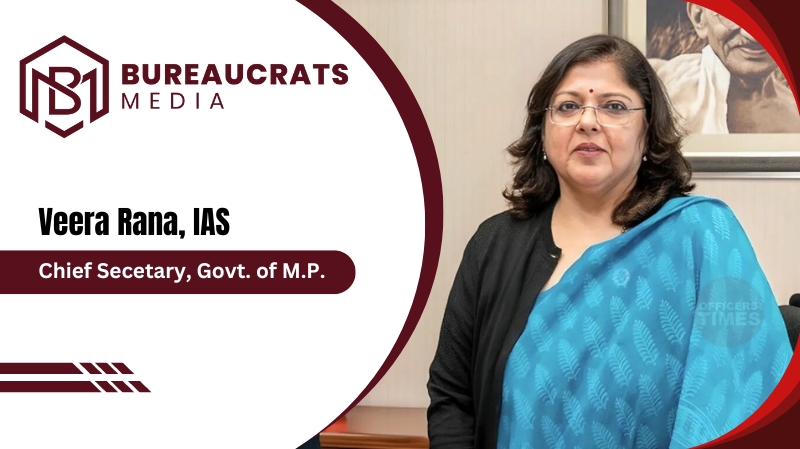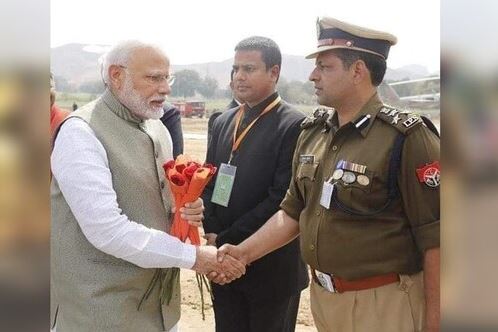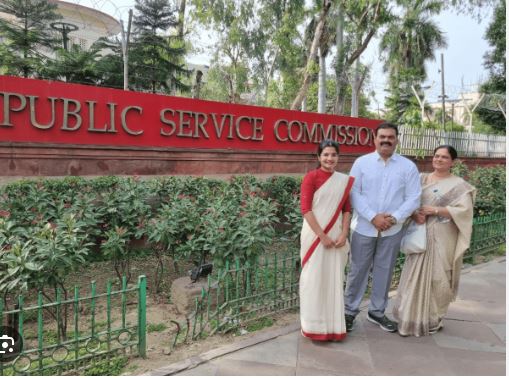Ms. Veera Rana, a 1988-batch officer of the Indian Administrative Service (IAS) from the Madhya Pradesh cadre, has had a distinguished career spanning over three decades. Hailing from Uttar Pradesh, she has demonstrated a profound commitment to public service, navigating diverse administrative and policy roles across sectors. Her career progression reflects a deep engagement with governance, policy execution, and a notable adaptability to varied departmental challenges. She officially superannuated from service in 2024, leaving behind a legacy of leadership in Madhya Pradesh’s bureaucratic landscape.
Ms. Rana began her career in the IAS in the early 1990s, quickly assuming various roles that involved significant administrative oversight at the grassroots level. Her initial postings were largely focused on land revenue management and district administration. Between 1990 and 1999, she held multiple pivotal roles, starting as a Sub-Divisional Officer (SDO), handling land reforms and revenue matters across various districts in Madhya Pradesh. Her tenure as District Collector in Mahasamund and Vidisha further cemented her reputation as an officer committed to efficient land revenue administration and district governance.
Her tenure as Additional Commissioner in Raipur (1999-2000) highlighted her growing expertise in land revenue and district administration, a key area for IAS officers working at the district level. This role prepared her for more strategic postings in the following years, including serving as the District Collector of Jabalpur, one of the major administrative divisions in Madhya Pradesh.
Ms. Rana’s move from district-level responsibilities to state-level assignments marked a significant shift in her career. In 2003, she took on the role of Director, Archaeology & Museum, reflecting a shift to cultural administration. Her time in this role involved overseeing the preservation and promotion of Madhya Pradesh’s rich cultural heritage, while also managing archives and administrative reforms in the sector. The role was a departure from her earlier district administration focus, allowing her to expand her expertise into the cultural domain.
Following this, she took on a series of finance and industry-related roles. From 2009 to 2011, Ms. Rana served as Managing Director in the State Finance Department, and the Industries Department, holding positions within the Madhya Pradesh State Financial Corporation and the Industrial Development Corporation. These roles broadened her administrative experience, engaging her in financial management and the promotion of industrial growth in the state, as well as focusing on small and village industries. Her role as Managing Director of the Handicrafts and Textiles Corporation (2011-2015) further extended her involvement in rural development, particularly in the promotion of traditional industries like handloom and handicrafts, sectors crucial to the livelihoods of rural communities in Madhya Pradesh.
Ms. Rana’s administrative journey continued to evolve with her significant contributions to governance in education and personnel management. Between 2015 and 2018, she held the role of Principal Secretary in the Rural Industries Department and later within the Madhya Pradesh Small Scale Industries Development Corporation. These roles required a nuanced understanding of rural and small-scale industries, which are vital to the economic fabric of the state.
Her next posting as Principal Secretary to the Governor (2018-2024) was one of the most high-profile roles in her career. Initially appointed as Additional Secretary in 2018, she swiftly rose to the position of Principal Secretary, becoming responsible for coordinating and managing the Secretariat and staff in the Governor’s office. This period highlighted her ability to navigate the complexities of constitutional roles while managing the Governor’s administrative needs. Simultaneously, she also held the portfolio of Secretary, Personnel, and General Administration, overseeing the administrative framework of the state and contributing to policy-making in personnel management.
During this period, Ms. Rana’s initiatives aimed at streamlining administrative processes, implementing reforms in governance, and ensuring smooth coordination between different wings of the government. Her leadership in the Governor’s Secretariat coincided with some of the state’s major reforms in public administration.
In the final stretch of her career, Ms. Veera Rana took on the mantle of Chief Secretary to the Government of Madhya Pradesh in early 2024. This appointment, though short-lived, was the pinnacle of her administrative journey. As Chief Secretary, she was responsible for the overall coordination of state governance, policy execution, and administrative oversight. She oversaw the General Administration Department, a key organ of the government responsible for personnel management, administrative reforms, and general governance.
Ms. Rana’s appointment to the highest bureaucratic position in the state underlined the confidence reposed in her by the state government. Her leadership as Chief Secretary was marked by efforts to streamline administrative processes, improve personnel efficiency, and ensure that governance remained citizen-centric.
Before her appointment as Chief Secretary, Ms. Rana also made substantial contributions to the education sector. As the Chairperson of the Education Department from December 2021 to January 2024, she led several key initiatives aimed at improving the state’s educational infrastructure. Her leadership in the Human Resource Development and Education sectors emphasized reforms to enhance the quality of education, increase accessibility, and strengthen the human resource framework within the state. Her experience in these sectors provided her with valuable insights into the challenges of public education in a developing state like Madhya Pradesh.
Ms. Veera Rana’s career is a testament to the versatility and resilience required of senior IAS officers. Her journey from managing district administration to heading the state as Chief Secretary showcases a trajectory filled with diverse responsibilities across sectors. Throughout her career, she adapted to new challenges, ranging from land reforms and district governance to overseeing education, industries, and personnel management.
Her approach to governance emphasized efficiency, reforms, and citizen-centric administration. Ms. Rana’s work in promoting small-scale industries, particularly in textiles and handlooms, as well as her contributions to administrative reforms and public governance, remain key highlights of her tenure in the Indian Administrative Service. Having superannuated in 2024, her legacy continues to inspire younger officers in the service, reflecting the impact of seasoned leadership in the Indian bureaucracy.




